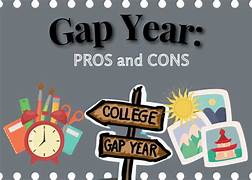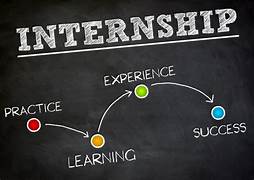Is a Gap Year Worth It? Exploring the Pros and Cons
Introduction
Taking a gap year has become an increasingly popular option for students after high school. The idea of stepping away from traditional education to travel, work, or pursue personal projects before diving into college or university is appealing to many. But is it really worth it? For some, a gap year can provide a much-needed break and a chance to grow personally, while for others, it may feel like a distraction or a waste of valuable time.
In this article, we’ll explore the pros and cons of taking a gap year to help you decide if it’s the right choice for you. Whether you’re unsure about the direction of your studies, want to gain work experience, or simply feel burnt out from years of schooling, understanding the potential benefits and drawbacks can help guide your decision.
1. What is a Gap Year?
A gap year is typically a 12-month period taken between high school and college (or university), although some students choose to take it at other points in their academic journey. During this time, students often pursue activities that are not part of the formal education system, such as travelling, volunteering, working, or engaging in creative projects.
While a gap year is often seen as a break from academics, it can also be an opportunity for growth, exploration, and personal development. The activities you engage in during your gap year can help you gain clarity about your future path and develop valuable skills for life.
2. The Pros of Taking a Gap Year
Personal Growth and Self-Discovery
One of the biggest benefits of a gap year is the opportunity for personal growth. Taking time off from the usual routine of school can give you the space to reflect on your goals, interests, and values. Whether you choose to travel or focus on personal projects, the freedom of a gap year can provide invaluable experiences that help you better understand who you are and what you want from life.
Gaining Work Experience
A gap year can also be an excellent opportunity to gain work experience. Whether you take on a part-time job, internship, or full-time employment, working during your gap year can help you build your resume and develop skills that will be useful when you eventually enter the workforce. It also provides a chance to save money for college and help ease the financial burden of tuition and living expenses.
Travel and Cultural Exposure
For many, a gap year is synonymous with travel. Spending time abroad or exploring new places can broaden your horizons and expose you to different cultures, people, and ways of thinking. This experience can be life-changing and provide you with a global perspective that enhances both your personal and academic life.
Avoiding Burnout
After years of intense studying and academic pressure, a gap year offers a chance to recharge and reset. If you’re feeling burnt out or uncertain about your academic future, a gap year can provide the mental and emotional space you need to come back to your studies with a renewed sense of purpose and energy.
Improved College Readiness
Taking a gap year can also help you approach college with a clearer sense of direction. By exploring new interests and gaining practical experiences, you may return to your studies with a better understanding of your passions and career goals. This clarity can lead to greater motivation, focus, and success in college.
3. The Cons of Taking a Gap Year
Potential for Losing Focus
One of the potential drawbacks of a gap year is the risk of losing momentum in your academic journey. If you take time off from education, it may be difficult to get back into the routine of studying and attending classes. Some students find that they struggle to adjust when they eventually return to school, especially if they’ve been out of the educational environment for a prolonged period.
Missing Out on College Admissions Deadlines
If you take a gap year, it’s important to plan ahead, particularly when it comes to college applications. Some students may find that their desired colleges have strict deadlines for admission, and taking a gap year may delay their entry into university. Additionally, some schools may not guarantee the same financial aid or scholarship opportunities if you apply after a gap year.
Financial Concerns
A gap year can also have financial implications. While you may save money by working during your time off, the cost of travelling or participating in volunteer programs abroad can add up quickly. If you’re planning to take a gap year, it’s essential to budget carefully and consider any financial strain that might result from postponing your education.
Uncertainty and Lack of Structure
Without the structure of school, a gap year can sometimes feel directionless. Some students may struggle to find meaningful activities or may feel lost without the routine of classes, assignments, and exams. Without a clear plan for how to spend your gap year, it can be easy to fall into a sense of aimlessness, which may cause frustration or feelings of regret.
Peer Pressure and Comparison
While you’re taking a gap year, many of your peers will likely be starting college. This can sometimes create feelings of isolation or pressure, especially if you feel like you’re falling behind in your academic and career progress. The desire to keep up with others can make the decision to take a gap year more challenging, particularly if your friends or family don’t understand the value of this time off.
4. How to Make the Most of a Gap Year
Set Clear Goals
To make the most of your gap year, it’s important to set clear and achievable goals. Whether you’re travelling, working, volunteering, or pursuing personal projects, having a plan will give you focus and direction. This will help ensure that you’re gaining valuable experiences rather than simply taking time off without purpose.
Gain Relevant Skills
Make sure to use your gap year to develop skills that will be useful in both your personal life and future career. Whether it’s learning a new language, gaining work experience, or volunteering, these activities can enhance your resume and prepare you for the challenges of higher education and beyond.
Stay Connected with Your Educational Journey
Even though you’re taking a break from formal education, it’s important to stay intellectually engaged during your gap year. Consider taking online courses, reading, or engaging in activities that challenge your mind and keep you sharp. This will make it easier to transition back into school when the time comes.
Budget Wisely
If you plan to travel or participate in expensive programs during your gap year, it’s essential to budget carefully. Research affordable options, save money in advance, and consider ways to fund your gap year through part-time jobs or internships. Avoiding financial strain will allow you to focus on making the most of your time off without worrying about money.
5. Conclusion
Deciding whether to take a gap year is a deeply personal decision. For some students, it can be an invaluable opportunity for growth, exploration, and self-discovery. For others, it may feel like a delay in their academic journey. By weighing the pros and cons, setting clear goals, and budgeting wisely, you can make the most of your gap year and ensure it is a meaningful and productive experience.
FAQs
1. Is a gap year right for everyone?
Not necessarily. It depends on your personal goals, financial situation, and readiness for taking time off from education. It’s important to evaluate your reasons for taking a gap year and consider whether it aligns with your long-term goals.
2. Can I take a gap year after starting college?
Yes, some students choose to take a gap year after their first year of college to recharge or explore career options. However, it’s important to consider the potential impact on your academic progress and financial aid.
3. Will taking a gap year affect my college admissions?
Taking a gap year can affect your college admission timeline, as some schools may have specific deadlines. It’s important to plan ahead and communicate with the colleges you’re interested in to ensure you don’t miss out on opportunities.
4. How can I make my gap year productive?
Set clear goals for what you want to achieve during your gap year, whether it’s gaining work experience, volunteering, or travelling. This will help you stay focused and ensure that your time off is valuable.
5. What are some alternatives to a gap year?
If a full gap year doesn’t appeal to you, consider taking a shorter break or exploring summer internships, study abroad programs, or part-time work during school holidays.
6. How do I financially prepare for a gap year?
Budget carefully, save money in advance, and explore ways to fund your gap year through part-time jobs, scholarships, or affordable travel options. Being financially prepared will help you avoid stress during your time off.
7. Can a gap year help with career clarity?
Yes, a gap year can provide valuable experiences that help you clarify your career interests and goals. Whether through work, travel, or volunteering, the activities you engage in can provide insight into the type of career you want to pursue.






